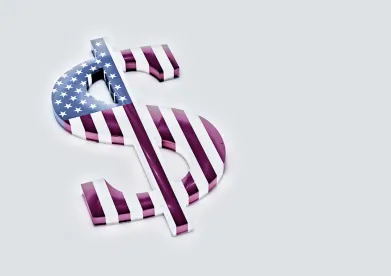Though much attention has been paid to state price gouging laws, several states without price gouging laws have nevertheless been active enforcers. Governors in many of these states have issued executive orders empowering their enforcers to target price gouging. Other states have repurposed existing laws to target price gouging. Price gouging in these states may pose greater compliance risk than in states with specific price gouging laws because these the states may not have statutory definitions or clear standards for what conduct constitutes unlawful price gouging. In this post, we consider price gouging rules and enforcement in states without price gouging-specific laws.Numerous states without price gouging laws have taken steps to prevent price gouging, often adopting rules similar to those in states with price gouging laws. For example, many state statutes prohibit prices grossly in excess of prices prior to the emergency. In Arizona, which does not have a price gouging law, Governor Ducey issued Executive Order 2020-07, which defined gouging as “charging a grossly higher price than that which was charged before the onset of the emergency.” Unlike most states however, Governor Ducey limited the restriction to “licensed health professional[s] or healthcare institutions,” and authorized the Department of Health Services to investigate.
Similarly, Delaware’s Governor John Carney used his emergency statement to declare price gouging a violation of the state’s consumer protection laws. Delaware’s consumer protection statute forbids the use of “deception, fraud, false pretense, false promise, misrepresentation, or the concealment suppression, or omission of any material fact with the intent that others rely upon” that concealment. 6 Del. C. § 2315. On its face, this language would not appear to cover price gouging. However, Governor Carney’s order declared price increases of over 10% to be price gouging, and explained that price gouging would be treated as an unlawful practice under § 2513. If and until the Governor’s order is successfully challenged, Delaware will apply this framework. As written, the order applies to all goods and services, and bars price increases of more than 10% unless the increase is attributed to costs imposed by seller’s suppliers. Notably, the Delaware consumer protection law specifically provides a private right of action in § 2525.
Minnesota, a leading enforcer of price gouging, does not have a price gouging law. However, on March 20, 2020, Governor Tim Walz signed an executive order stating: “all persons are prohibited from selling, offering to sell, or causing to sell in this state any essential consumer goods or services for an amount that represents an unconscionably excessive price.” The order defined unconscionably excessive three different ways, each of which borrows from language in other states. First, prices can be unconscionably excessive if there is “a gross disparity between the price of the good or service and the price of the same good or service that was sold or offered for sale in the usual course of business during the thirty (30) days immediately prior to the peacetime emergency.” Second, the price is 20% or greater than the price of the same good or service in the 30 days before the state of emergency. Or third, the amount charged for the good or service “grossly exceeds the price at which the same or similar good or service is readily obtainable by other purchasers in the trade area.”
Governor Walz’s order used existing Minnesota law to implement penalties for price gouging. Minnestota, like many states, permits Governors to implement emergency rules during a state of emergency. In Minnesota, this authority includes the ability to make rules that can come with penalties. Governor Walz relied on Chapter 12 of the Minnesota Code to implement a fine of “up to $10,000 per sale or transaction.” See, Minn. Stat. § 12.45 (2019). These are some of the highest penalties for price gouging in the United States, and they indicate just how seriously Minnesota intends to take price gouging.
After Governor Walz issued his executive order, Attorney General Keith Ellison took quick steps to investigate price gouging. Reports indicate that many of these investigations began with retailers. Consumer complaints often lead investigators to specific retailers. In a number of cases however, these retailers then send investigators along to their suppliers, and so-on up the supply chain. So even though commentary suggests many investigations began with retail, upstream companies may want to consider Minnesota’s efforts, along with others investigating upstream suppliers.
Other states have simply repurposed consumer protection laws to target price gouging. For example in Montana, Attorney General Tim Fox issued a statement saying “state law protects [consumers] from unfair and deceptive trade practices and price fixing.” AG Fox’s statement argues that the states’ standard consumer protection statute covers price gouging. The statute prohibits unfair methods of competition and unfair or deceptive acts or practices. MT Stat. § 30-14-103. This statute also comes with civil fines up to $20,000 for willful violations, along with extra criminal penalties. Most other states also have similar consumer protection laws, which may leave open the possibility for enforcement under these laws.
These efforts and other new price gouging laws demonstrate how rapidly the price gouging landscape is evolving. Two states have passed new price gouging laws in the past few weeks, and six have pending legislation. There are still a number of states without price gouging laws, including: Colorado, Nebraska, New Hampshire, and North Dakota. But companies would be well advised to keep an eye on their price gouging compliance efforts even in states without price gouging specific laws presently in place.







 />i
/>i
